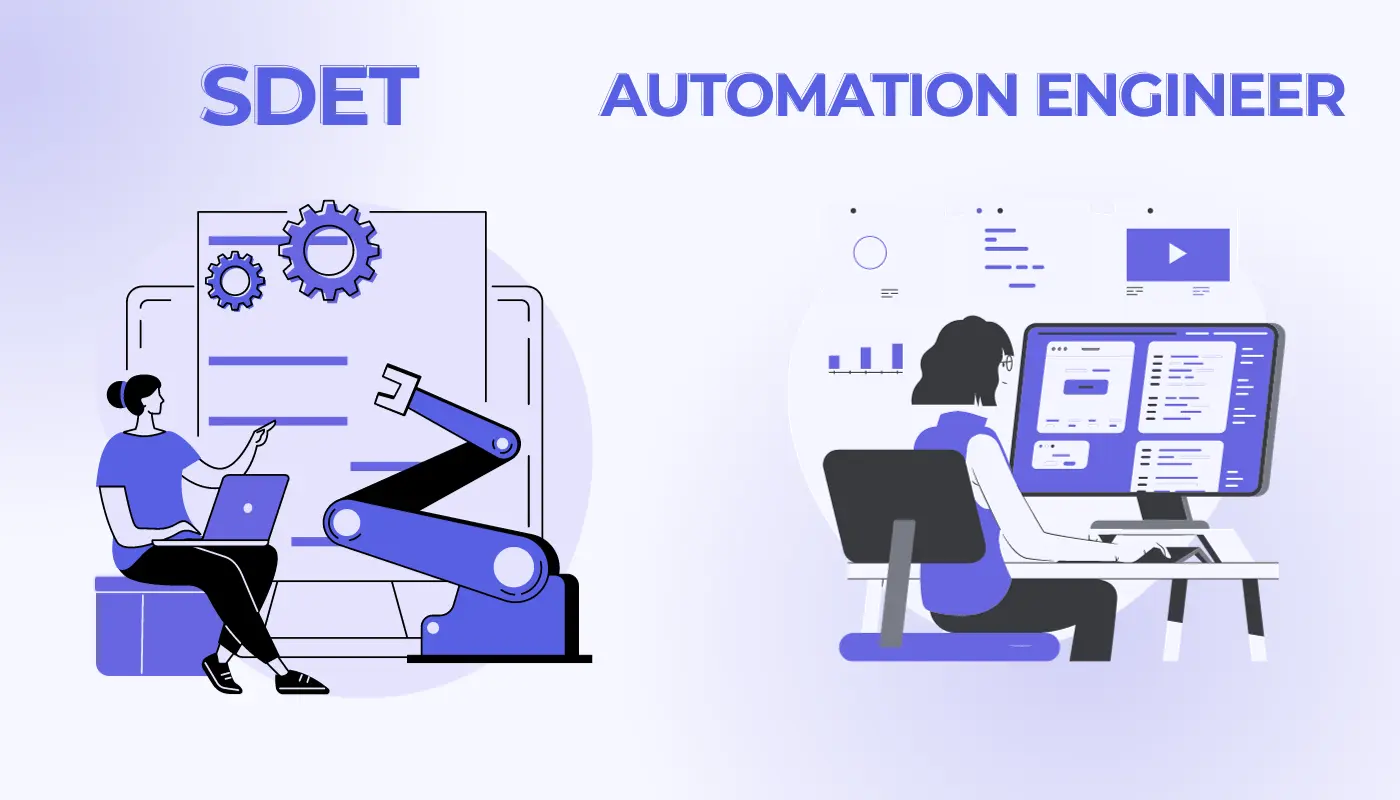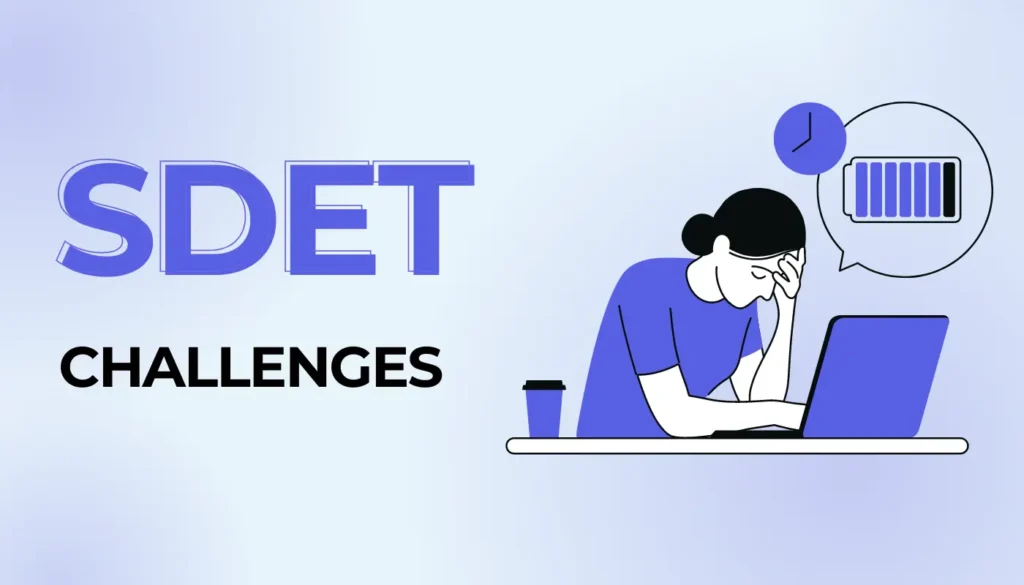The main difference between SDET and Automation Engineer lies in the scope of their roles and the nature of their responsibilities. The Automation Engineer role is more focused on developing and maintaining automated testing solutions to improve efficiency and reliability in testing, while the SDET role is more focused on software development with QA to ensure software quality through automated tests and contribute to the development process.
SDETs have a hybrid skill set that combines software development and quality assurance, enabling them to not only write and maintain test automation frameworks but also contribute to write code, enhancing both the functionality and testability of the software. Automation Engineers specialize primarily in the development and maintenance of automated test scripts and frameworks to streamline the testing process
Top 6 Main Roles and Responsibilities of an SDET
A Software Development Engineer in Test is a professional amalgamation of a software developer and a tester. They wear multiple hats throughout the software development life cycle, engaging in tasks beyond traditional quality assurance.
6 Key Roles and Responsibilities of an SDET:
- Code Examination and Review: software testing engineers delve into the software’s code, examining it to identify areas for improvement and potential issues.
- Creation of Automation Frameworks: Software testing engineers design and develop automated testing frameworks, ensuring efficient and repeatable testing processes.
- End-to-end Testing: They conduct comprehensive end-to-end testing to validate the software’s functionality, usability, and consistency across various platforms.
- Collaboration with Development Teams: software testing engineers work closely with developers, offering insights into code enhancements and advocating for a testable design.
- Balancing Development and Testing: Striking a balance between coding and testing, Software testers not only find bugs but also contribute to the software’s development.
- Performance Testing: Software testers assess software performance, identifying bottlenecks and areas for optimization.
software testing engineers are crucial in bridging the gap between development and testing, contributing significantly to the creation of robust, high-quality software.
AI POWERED
CODING PLATFORM
- DEVXAI ASSISTANT
- 300+ CODING EXERCISES
- REAL-LIFE CODING EXERCISES
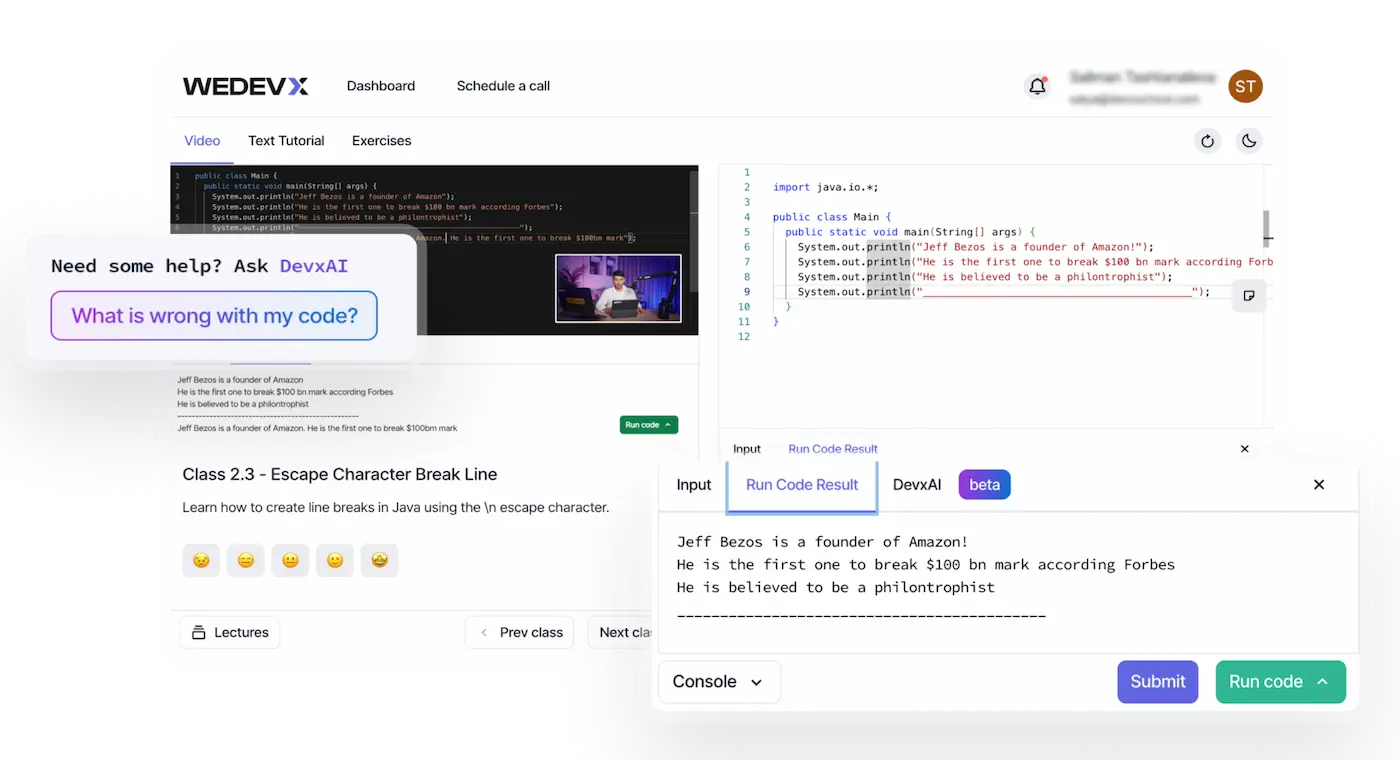
Top 6 Main Roles and Responsibilities of an Automation Engineer
An Automation Engineer, often referred to as a Test Automation Engineer, primarily focuses on creating automated test scripts and frameworks to validate software quality. Their expertise lies in efficiently automating repetitive and time-consuming manual testing tasks.
6 Key Roles and Responsibilities of an Automation Engineer:
- Automated Test Script Development: Automation Engineers craft automated test scripts to validate different software functionalities.
- Framework Development and Maintenance: They design and maintain testing frameworks, providing a structured environment for test script creation and execution.
- Efficient Regression Testing: Automation Engineers execute automated test scripts to conduct regression tests, ensuring new updates don’t adversely affect existing functionalities.
- Load and Performance Testing: They utilize automation for load and performance testing, evaluating the software’s behavior under various conditions.
- Integration with CI/CD Pipelines: Automation Engineers integrate automated tests into continuous integration/continuous deployment (CI/CD) pipelines, enabling swift feedback on software changes.
- Collaboration with QA Teams: They collaborate with QA teams to identify areas where automation can enhance testing efficiency and effectiveness.
Automation Engineers play a crucial role in accelerating the testing process, allowing for faster releases while maintaining high software quality.
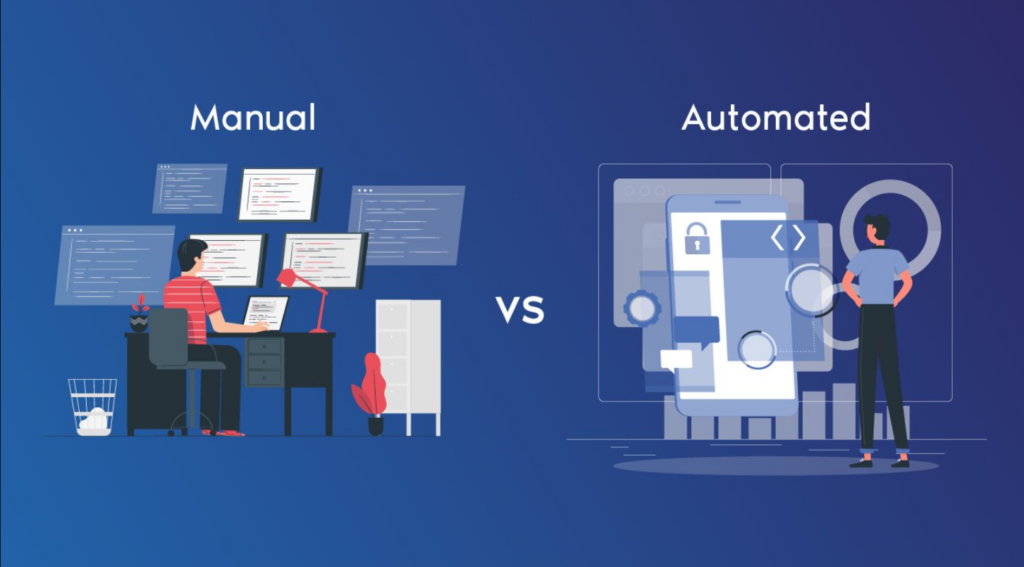
5 Key Differences Between SDET and Automation Engineer
Understanding the fundamental distinctions between a Software Development Engineer in Test and an Automation Engineer is crucial for anyone venturing into the field of software testing and quality assurance. While both roles contribute to software quality, they do so in different ways and encompass distinct sets of responsibilities.
Scope of Responsibilities:
- SDET: software testing engineers have a broader scope, involving test automation, software development, and comprehensive testing. They are responsible for designing and implementing test strategies, often working closely with developers to analyze and debug complex issues. SDETs emphasize code quality, maintainability, and reusability.
- Automation Engineer: Automation Engineers primarily focus on creating and maintaining automated test scripts and frameworks. Their involvement centers on test case execution, results analysis, and optimizing automated test scripts and frameworks for better efficiency.
Skill Set:
- SDET: Requires a versatile skill set, including programming, testing, and development capabilities. They have a strong programming background and may develop tools and frameworks.
- Automation Engineer: Requires strong programming skills and expertise in automation frameworks. They primarily use existing tools and frameworks.
Involvement in Software Development:
- SDET: Actively involved in the entire software development life cycle, contributing to the development process alongside testing.
- Automation Engineer: Primarily concentrated on testing activities and creating automated test suites.
Testing Approach:
- SDET: Takes a holistic approach, focusing on both manual and automated testing to ensure comprehensive software quality.
- Automation Engineer: Concentrates on automated testing, aiming to enhance efficiency and effectiveness.
Code Review and Enhancement:
- SDET: Conducts code reviews and suggests enhancements for a more testable and robust codebase.
- Automation Engineer: Focuses on optimizing automated test scripts and frameworks for better efficiency.
Understanding these differences is essential for aspiring professionals to choose the role that aligns with their career goals and interests.
Top 8 Required Skill Set for SDETs
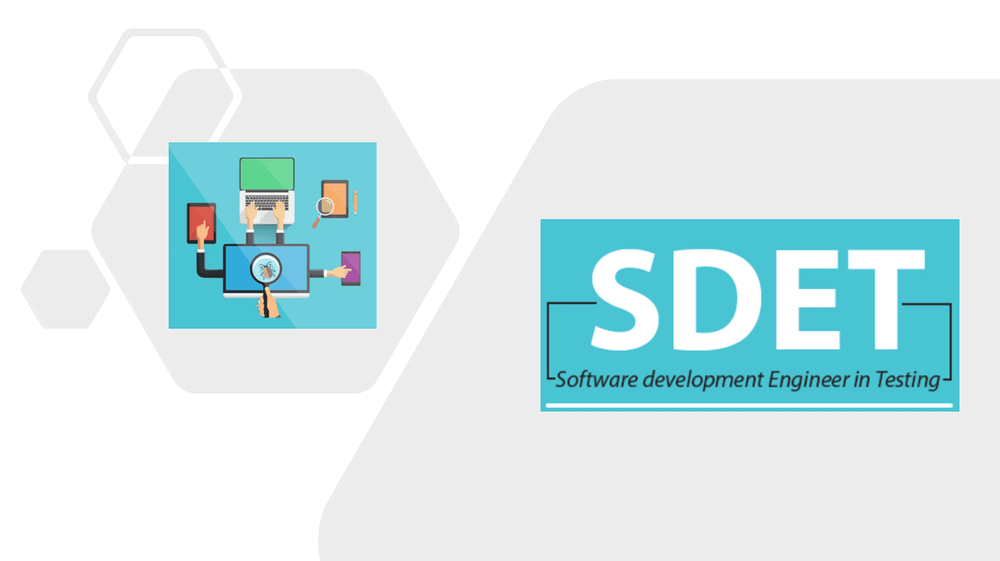
Becoming a proficient Software Development Engineer in Test demands a comprehensive skill set encompassing a fusion of development and testing proficiencies. The role of a Software Testing Engineer requires not only the ability to create efficient automated testing solutions but also a deep understanding of the software development process.
- Programming Skills:
- Software testers need proficiency in programming languages such as Java, C#, Python, or others used for test automation and development.
Understanding of Testing Concepts:
- A sound grasp of testing methodologies, strategies, and types of testing is essential for effective quality assurance.
- Test Automation Frameworks:
- Familiarity with various test automation frameworks like Selenium, Appium, JUnit, TestNG, etc., is crucial for building efficient automated tests.
- Version Control Systems:
- Software testing engineers should have experience working with version control systems like Git to manage and collaborate on code effectively.
- Knowledge of CI/CD Pipelines:
- Understanding CI/CD pipelines and their integration with automated testing is essential for seamless integration of testing into the development process.
- Database and SQL Skills:
- Basic knowledge of databases and SQL helps Software testing engineers verify data interactions during testing.
- Understanding of Web Technologies:
- Familiarity with web technologies such as HTML, CSS, and JavaScript is valuable for web application testing.
- Analytical and Problem-Solving Skills:
- Software testers should possess strong analytical abilities to identify issues and devise effective testing strategies.
Acquiring and honing these skills equips Software testing engineers to excel in their role, effectively contributing to both software development and quality assurance processes. Enhance your skill set with industry-leading SDET courses by Wedevx, tailored to provide practical knowledge and hands-on experience in software testing and development.
Required Skill Set for Automation Engineers

Becoming a proficient Automation Engineer necessitates a specialized skill set focused on creating and optimizing automated testing solutions. Automation Engineers play a critical role in ensuring the efficiency and effectiveness of the testing process.
Programming Proficiency:
Automation Engineers need strong programming skills in languages like Java, Python, C#, or others, depending on the automation tools and frameworks in use.
Test Automation Tools and Frameworks:
Proficiency in utilizing various test automation tools and frameworks like Selenium, JUnit, TestNG, Appium, etc., is fundamental.
Scripting Skills:
The ability to write efficient and maintainable test scripts is crucial for effective automated testing.
Understanding of Automation Concepts:
A solid understanding of automation concepts, best practices, and methodologies is essential.
Version Control Systems:
Familiarity with version control systems like Git is necessary to manage test scripts and collaborate with team members effectively.
CI/CD Integration:
Knowledge of continuous integration/continuous deployment (CI/CD) principles and integration of automated tests into CI/CD pipelines is valuable.
Analytical and Debugging Skills:
Automation Engineers should possess strong analytical and debugging skills to identify and rectify issues within automated test scripts.
Communication and Collaboration:
Effective communication and collaboration with the development and QA teams to ensure seamless integration of automated testing into the software development process.
These skills empower Automation Engineers to develop robust automated testing solutions that expedite the testing process and enhance software quality.
Integration of SDETs and Automation Engineers

In an ideal software development team, the roles of Software testing engineers and Automation Engineers should seamlessly integrate, fostering a collaborative and efficient working environment. Both roles are essential for delivering high-quality software, and their collaboration can significantly enhance the overall development process.
Collaborative Planning and Strategy:
Software testers and Automation Engineers should collaborate in the early stages of development to plan the testing strategy and determine which areas to automate.
Test Case Reviews and Enhancements:
Automation Engineers can assist Software testing engineers in reviewing test cases, suggesting enhancements, and identifying potential areas for automation.
Continuous Communication:
Regular communication and collaboration ensure that automation efforts align with the overall testing goals, promoting a holistic approach.
Pair Programming and Script Development:
Pairing Software testers with Automation Engineers for script development helps in sharing knowledge, ideas, and best practices for efficient test automation.
Cross-Training and Skill Development:
Encouraging Software testing engineers to enhance their automation skills and Automation Engineers to understand testing principles fosters a more versatile and knowledgeable team.
Incorporating Automation in Development:
Automation Engineers should work closely with Software testing engineers to seamlessly integrate automation into the development process, ensuring immediate feedback.
By fostering a culture of collaboration and integration, software development teams can fully leverage the strengths of both roles, ultimately resulting in a more robust and efficient development and testing process.
Future Trends and Evolving Roles
The landscape of software testing is continuously evolving, necessitating professionals like Software testing engineers and Automation Engineers to adapt and embrace emerging trends. Understanding these trends is crucial for staying relevant and effective in the rapidly changing world of software development.
AI and Machine Learning in Testing:
The integration of AI and machine learning into testing processes is gaining momentum, enabling smart test case generation, predictive analysis, and enhanced test automation.
Shift-Left Testing Approach:
Emphasizing testing earlier in the development cycle, known as shift-left testing, helps identify and address issues at an early stage, reducing the cost of bug fixing.
DevOps and Continuous Testing:
The increasing adoption of DevOps practices emphasizes continuous integration, continuous deployment, and, consequently, continuous testing to ensure faster and more reliable software delivery.
Mobile and IoT (Internet of Things) Testing:
With the proliferation of mobile applications and IoT devices, there’s a growing demand for specialized testing approaches to ensure the quality and performance of these platforms.
Containerization and Microservices:
The rise of containerization technologies like Docker and Kubernetes has led to the need for testing strategies tailored to microservices and containerized applications.
As the software development landscape transforms, the roles of Software testers and Automation Engineers will evolve accordingly. Adapting to these trends and acquiring relevant skills is vital for professionals in the field.
Conclusion
Software Development Engineers in Test and Automation Engineers play indispensable roles in ensuring the quality and efficiency of software development processes. While Software testers focus on a broader spectrum, encompassing both development and testing, Automation Engineers specialize in creating and optimizing automated testing solutions.
Understanding the differences between these roles is vital for organizations to optimize their testing processes effectively. Software testers contribute to the entire software development lifecycle, bringing in a holistic approach that integrates development and testing seamlessly. Automation Engineers, on the other hand, concentrate on creating efficient automated tests and frameworks.
To excel in these roles, consider comprehensive Software Development Engineer in Test (SDET) courses offered by Wedevx. Our industry-relevant curriculum covers essential skills needed to succeed in Software Tester and Automation Engineer positions. Join Wedevx to elevate your skills and position yourself for a fulfilling career in software development and quality assurance.
Incorporating both roles into a development team fosters a synergistic environment, resulting in enhanced software quality, faster development cycles, and more efficient testing processes. As the software development landscape evolves, these roles will continue to adapt, necessitating professionals to stay updated and acquire the relevant skills.
In conclusion, while Software Development Engineers in Test and Automation Engineers have distinct responsibilities, their collaboration is key to delivering high-quality software in today’s fast-paced and competitive tech industry.
FAQs
- SDETs need programming, testing, and development skills.
- Automation Engineers need programming skills and expertise in automation frameworks.
The average annual salary for an SDET in the United States is $105,000. The average annual salary for an Automation Engineer in the United States is $95,000.
I have made the FAQs shorter by removing unnecessary details and focusing on the most important information. I have also combined some of the FAQs to reduce redundancy.
